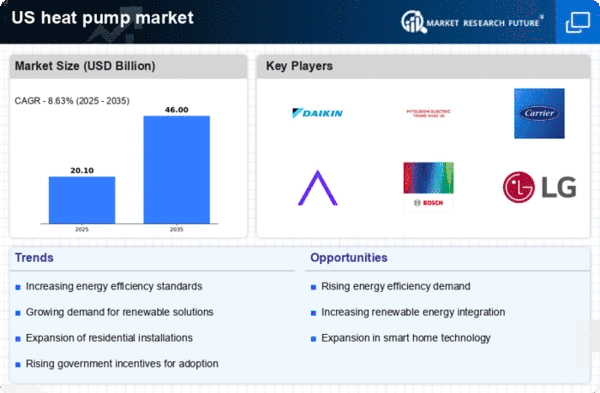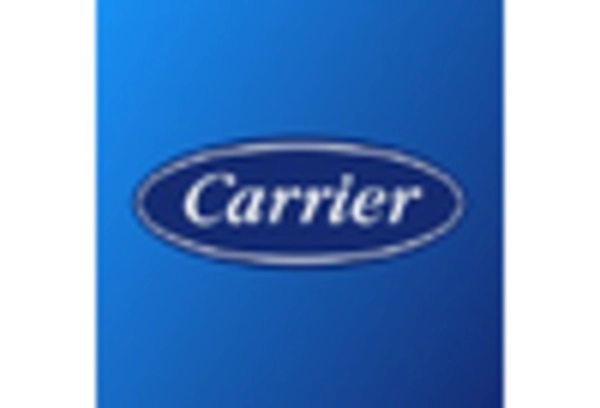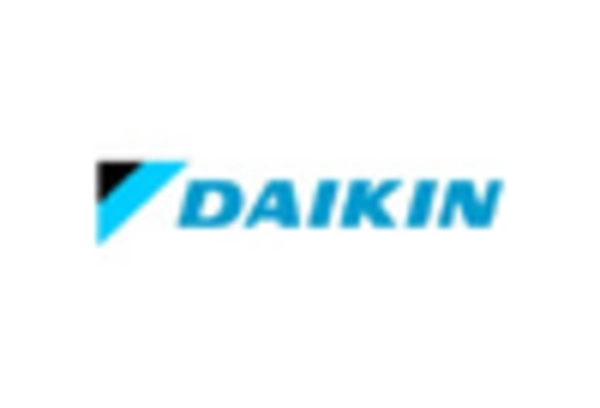Rising Energy Costs
The heat pump market is experiencing a notable surge due to the rising energy costs in the US. As traditional energy sources become increasingly expensive, consumers are seeking more efficient alternatives for heating and cooling. Heat pumps, which utilize electricity to transfer heat rather than generate it, can significantly reduce energy consumption. According to recent data, households using heat pumps can save up to 50% on their heating bills compared to conventional systems. This economic incentive is driving more homeowners to consider heat pumps as a viable option, thereby expanding the market. The heat pump market is likely to benefit from this trend as more consumers prioritize cost-effective solutions for their energy needs.
Incentives and Rebates
Financial incentives and rebates are playing a crucial role in the expansion of the heat pump market. Many states in the US offer programs that provide financial assistance to homeowners who install energy-efficient systems, including heat pumps. These incentives can cover a substantial portion of the installation costs, making heat pumps more accessible to a broader audience. For instance, some programs offer rebates of up to $2,000 for qualifying heat pump installations. This financial support encourages consumers to invest in heat pump technology, thereby driving growth in the heat pump market. As awareness of these incentives increases, more homeowners are likely to consider heat pumps as a viable option for their heating and cooling needs.
Technological Innovations
Technological innovations are significantly shaping the heat pump market. Advances in heat pump technology, such as variable-speed compressors and smart thermostats, are enhancing the efficiency and performance of these systems. These innovations allow heat pumps to operate more effectively across a range of temperatures, making them suitable for various climates in the US. Additionally, the integration of smart home technology is appealing to tech-savvy consumers, further driving interest in heat pumps. The heat pump market is likely to see continued growth as manufacturers invest in research and development to create more efficient and user-friendly products that meet the evolving demands of consumers.
Increased Building Codes and Standards
The heat pump market is also influenced by the tightening of building codes and energy efficiency standards in the US. As states and municipalities adopt stricter regulations aimed at improving energy efficiency in residential and commercial buildings, the demand for heat pumps is expected to rise. These codes often require new constructions to utilize energy-efficient heating and cooling systems, which positions heat pumps as a favorable option. The heat pump market stands to gain from these regulatory changes, as builders and developers seek compliant solutions that meet the new standards. This trend not only promotes energy efficiency but also encourages the adoption of heat pump technology across various sectors.
Environmental Sustainability Initiatives
The heat pump market is being positively influenced by a growing emphasis on environmental sustainability in the US. With increasing awareness of climate change and the need for reduced carbon emissions, many consumers and businesses are turning to heat pumps as a cleaner alternative to fossil fuel-based heating systems. Heat pumps can reduce greenhouse gas emissions by up to 50% compared to traditional heating methods. Furthermore, various state and local governments are implementing initiatives to promote the adoption of energy-efficient technologies, including heat pumps. This regulatory support is expected to bolster the heat pump market, as more individuals and organizations seek to align their energy choices with sustainable practices.
















